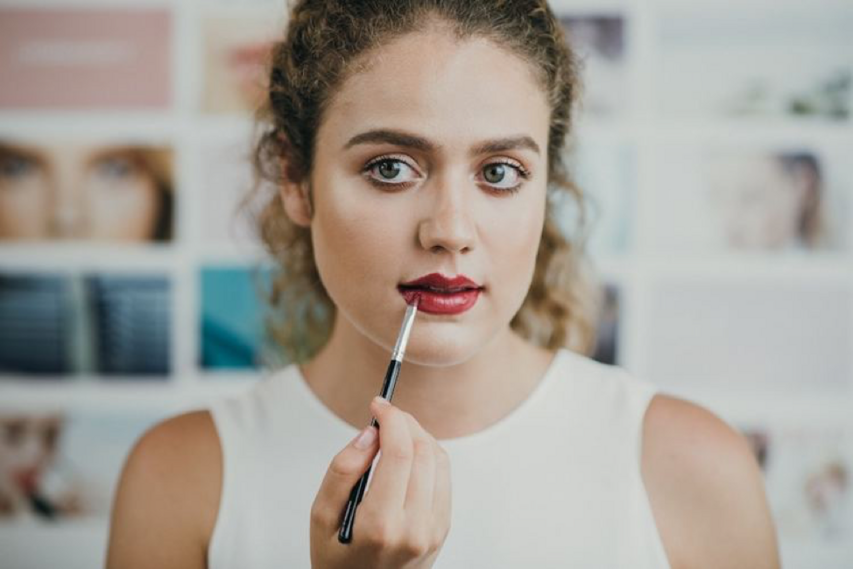Acne around the mouth - causes and treatments

Tackling Acne Around the Mouth: Causes, Tips, and Treatments
Acne around the mouth—often referred to as perioral dermatitis—is a frustrating condition that affects many women in their 20s and 30s. Without proper treatment, it can persist for months or even years, making it one of the trickiest types of acne to manage. Fortunately, with the right skincare routine and lifestyle adjustments, you can take control and achieve clear, healthy skin.
What Causes Acne Around the Mouth and Chin?
Understanding the root causes of perioral dermatitis is key to effective treatment. Here are the most common triggers:
1. Hormonal Imbalances
Fluctuating hormone levels can increase oil production, leading to breakouts around the mouth. This type of acne often appears alongside other symptoms, such as breakouts on the chin, jawline, or neck, and can sometimes manifest as cystic acne.
2. Hygiene Habits
Insufficient makeup removal, dirty makeup brushes, and even poor dental hygiene can contribute to acne around the mouth. These seemingly small oversights can allow bacteria and oil to build up, triggering breakouts.
3. Cosmetic Products
Pore-clogging makeup, grooming products, or lip balms can worsen perioral dermatitis. Even “natural” products can contain irritating ingredients, so always check labels carefully.
4. Diet
Certain foods—especially those high in sugar, dairy, or iodine—can exacerbate breakouts around the mouth. Your diet plays a big role in maintaining healthy skin.
How to Treat Acne Around the Mouth
These tips and treatments are effective for all skin types, including sensitive skin. Tailor them to your needs and consult a dermatologist if you don’t see improvement within a few weeks.
1. Rethink Your Makeup
Switch to oil-free, non-comedogenic, and hypoallergenic makeup to avoid clogging your pores. Whenever possible, go makeup-free to allow your skin to heal. Regularly clean your makeup brushes to prevent bacterial buildup.
2. Watch Your Lip Balm
Many lip balms contain oils or irritating ingredients that can worsen acne. Try skin-friendly options like:
- Aquaphor Healing Ointment
- Supergoop Acai Fusion Lip Balm (SPF 30)
- Lano 101 Ointment Multi-Balm Coconut
3. Remove Makeup Every Night
Always remove your makeup before bed! Use a gentle, oil-free makeup remover or wipes to ensure your skin is completely clean.
4. Cleanse Twice a Day
Use a gentle, medicated cleanser with active acne-fighting ingredients like salicylic acid morning and night. This helps unclog pores, reduce inflammation, and maintain a healthy skin barrier.
5. Use an Acne Treatment Cream
Perioral dermatitis responds well to treatments with salicylic acid or benzoyl peroxide. Dilute your treatment cream by mixing a pea-sized amount with an oil-free moisturizer to prevent dryness:
- Oily Skin: Apply nightly or every other night.
- Dry Skin: Start with applications every three days, using moisturizer on off days.
For personalized treatment, try the MDacne skin analysis.
6. Use a Napkin After Eating
Always wipe your mouth and chin after meals to remove oil or residue. This is especially important after eating oily or salty foods.
7. Stay Away from Food Triggers
Certain foods, such as those high in iodine (like sushi and iodized salt), can worsen acne. Limit these foods to see if they improve your skin.
8. Change Your Toothpaste
Fluoride in toothpaste is a common trigger for acne around the mouth. Switch to a fluoride-free toothpaste, such as:
- Dr. Bronner's Peppermint Toothpaste
- Tom's of Maine Antiplaque and Whitening Fluoride-Free Toothpaste
- Jason Sea Fresh Strengthening Fluoride-Free Toothpaste
9. Eliminate Topical Steroids
Steroid creams, nasal sprays, or inhalers are frequent triggers for perioral dermatitis. If you’re using these, consult your doctor about alternatives or strategies to reduce their use.
10. Limit Sun Exposure
Sun exposure, heat, and humidity can worsen perioral dermatitis. Protect your skin with a lightweight, oil-free SPF sunscreen, and try to stay cool in humid climates.
When to Consider Oral Medication
If you’ve tried the steps above without success, it may be time to consult a dermatologist, physician, or OB/GYN about oral treatments. Hormonal acne often requires more than topical solutions for full clearance. Options include:
- Accutane (isotretinoin): A prescription-strength vitamin A derivative.
- Birth Control Pills: Can help regulate hormone levels.
- Spironolactone: A medication that blocks certain hormones to reduce acne.
More info on acne around the mouth
To find the right acne treatments for your unique skin, take the free skin assessment by clicking here.



